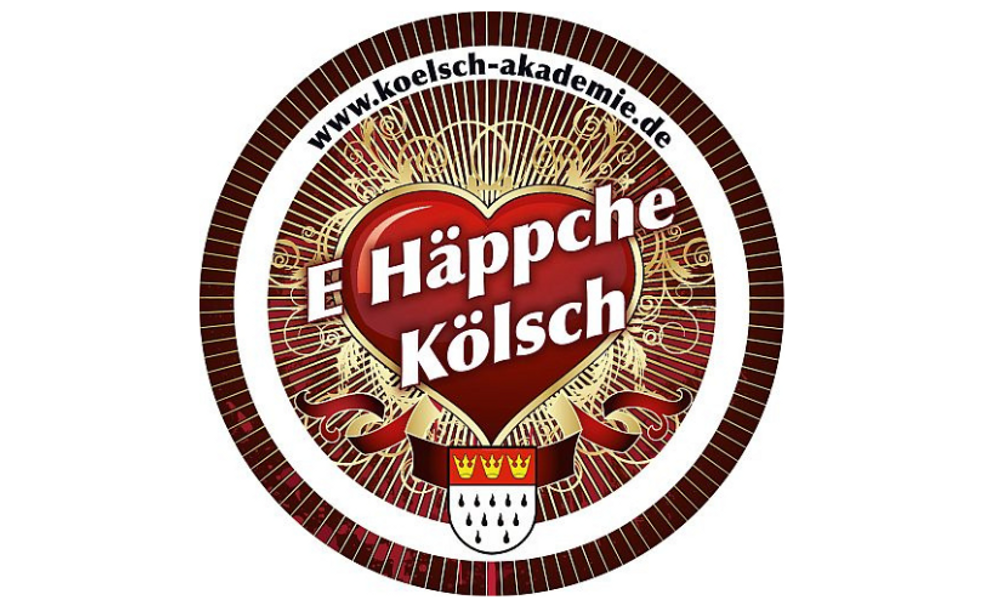Kölle Alaaf! The little Cologne carnival 1x1
Cologne Carnival - an annual highlight for locals, but often a big question mark for the uninformed 🙃 Either way, to make sure you don't embarrass yourself on carnival days, we have put together a little carnival 1x1 together with the Akademie för uns Kölsche Sproch of the SK Stiftung Kultur. After all, what would Cologne Carnival be without the right understanding of the Cologne language?
The SK Stiftung Kultur's Akademie för uns Kölsche Sproch has set itself the task of keeping the Kölsch language alive. And what better way to do this than by actively speaking Kölsch? The seminars and courses at the Kölsch Academy offer a wide range of options for everyone, from beginners' seminars to a variety of themed courses on Cologne's history and literature. Want to learn Kölsch yourself? You can register for the new courses from the end of May! All information is available at www.koelsch-akademie.de and on the social media channels @skstiftungkultur!

Here is our little carnival 1x1 👇
YOU MISUNDERSTAND THESE LYRICS
Did you know that the SK Stiftung Kultur's Akademie för uns Kölsche Sproch has over 15,000 songs in its Kölsche Liedersammlung? Let's take a closer look at some of the lyrics!
"The robber in the gutter", "the super horny bitch" or "the Dudelkopp on our flag" - if you are new to Cologne, you will probably have your first encounter with these characters in Cologne songs 🎶. But contrary to initial assumptions, there is a very special Cologne meaning behind these terms. The robber, for example, lives carefree into the day (in Kölsch: in dä Dach rin), the "Zick" stands for time, and the "Duudekopp" turns out to be the skull.
At carnival, you will definitely dance a polonaise to the song "Die Karawane zieht weiter" by the Höhnern. The often misunderstood lyrics "Du mer ne, du'mer ne du'mer ne Klore" should not unsettle you - it simply means "Gib mir nen Klaren (Schnaps)" and not "Tu mir nicht klagen", as it might seem at first glance. Cologne songs are full of such charming stumbling blocks, which make singing them all the more amusing. So don't worry: we Cologne locals are happy for anyone who sings along enthusiastically - no matter how confident you really are with the lyrics in the end.
 © Markus Spiske
© Markus Spiske
DO'S & DONT'S IN THE COLOGNE CARNIVAL
Although the carnival is still unbridled and cheerful today, there are a few things you should be aware of, even if you're not from Cologne:
DO'S
▶️ People here are very proud of the Cologne songs, which is why every Jeck is happy when you sing along to the songs - regardless of whether you know the words or not. As the choruses are always repeated, you can do it safely!
▶️ If you like a costume, then always show it off! Not only will you make others happy, but you'll also easily meet new people. It makes waiting in the pub queues twice as much fun.
▶️ True to the motto: "Genog es Genog", you are welcome to put the beer mat on the Kölsch glass in the Kölsch pub if you don't want to drink any more Kölsch. Otherwise, it just keeps on flowing.
▶️ If you like the location you're in: stay there! Unfortunately, once you've left, you've really lost your place.
DONT'S
▶️ All sentences that begin with "ein dreimol..." are ended with "Alaaf" and no other word. The H-word in particular (for all newbies: Helau) is not well received by anyone on the big days.
▶️ Carnival is not an excuse for assaultive behavior. Of course, Bützjer and cheerful Fisternöllchen (Kölsch for sexual relations) are very welcome at carnival, but your carnival flirting should not be seen as an invitation to drunken assault.
▶️ "Strüßje" (Kölsch for "little flower") is something you get, not something you shout for. In the Veedelszügen and in the Rosenmontagszug you can always hear cries of "Strüßje", but a Blümchen is like a nice compliment: you don't have to ask for it, you get it.
 © Chris Barbalis
© Chris Barbalis
BACK TO THE ROOTS OF THE COLOGNE CARNIVAL
Cologne Carnival has not always been as we know it today. 👀 In particular, the carnival has only existed for around two hundred years. In 1823, the Festordnende Komitee (now known as Festkomitee Kölner Karneval 1823 e.V.) was founded to bring order to the previously wild Cologne street carnival. It was founded primarily to appease Cologne's occupiers at the time, the Prussians. The anarchic and difficult to control street carnival was a thorn in the side of the Prussian administrators.
Many of today's carnival traditions, including the uniforms of the sparks and the medals, are still a satirical nod to the militarism of Cologne's French and Prussian administrators at the time. The hero of the carnival, forerunner of today's prince, first took to the stage during the first Rose Monday parade on Cologne's Neumarkt. He made his rounds in a golden dolphin, which today looks more like a bizarre mixture of fish and Chinese dragon.
🤫 Good to know: the first Rose Monday procession actually went round in circles like a merry-go-round. Fortunately, you don't have to put up with this spinning worm anymore these days!
Rausgegangen & the Akademie för uns Kölsche Sproch of the SK Stiftung Kultur wish you lots of fun at carnival 🎊✨ And if you get too carried away: No problem, as always it's the Nubbel's fault!

